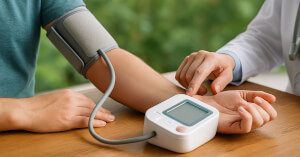
HibiscusBenefits, Uses & Dosage
Hibiscus is used to lower blood pressure, support heart health, and provide antioxidant benefits.
Hibiscus (Hibiscus sabdariffa) is a flowering plant whose deep red petals are used to make teas and extracts rich in antioxidants. It has long been consumed in Africa, Asia, and Latin America for hydration and wellness.
Hibiscus contains anthocyanins and polyphenols that may support cardiovascular health, blood pressure regulation, and inflammation reduction. It has a tart, refreshing flavor and is popular in herbal infusions.
Hibiscus is commonly used for heart health and antioxidant support. Some studies confirm its role in lowering blood pressure, though further clinical trials are needed to validate broader applications.
Other names & forms of Hibiscus supplement : hibiscus sabdariffa, roselle, hibiscus flower, hibiscus tea, hibiscus extract
Benefits
Hibiscus is rich in anthocyanins and polyphenols, compounds that help lower blood pressure, regulate lipid metabolism, and provide antioxidant protection.
- May support Heart Health by promoting healthy blood pressure and improving arterial function.
- Contributes to Blood Sugar Support by enhancing insulin sensitivity and regulating glucose levels.
- Its antioxidant activity may promote Anti-Aging by protecting cells from oxidative damage.
- May aid in Weight Loss by inhibiting lipogenesis and supporting metabolism.
Dosage
Health professionals suggest that the dosage of Hibiscus supplement be customized for each individual:
- Blood pressure and antioxidant support: 500–1000 mg/day of Hibiscus extract (standardized to anthocyanins).
- Tea form: 1.5–3 grams of dried calyxes steeped in hot water, 1–2 times daily.
- Capsules: Typically 250–500 mg, once or twice daily.
- Recommendation: Monitor blood pressure if combining with antihypertensives.
Side Effects
Hibiscus can support healthy blood pressure and antioxidant status, but as you incorporate it, mild effects can occur. Watch for:
- Temporary changes in blood pressure, lightheadedness or dizziness if you’re prone to hypotension
- Mild gastrointestinal upset, nausea or stomach cramps, especially on an empty stomach
- Possible urinary frequency or diuretic effects, monitor fluid intake
- Occasional headache or fatigue during initial use
- Rare allergic reactions, rash or itching, in those sensitive to Hibiscus species
Interactions
Possible interactions include:
- Antihypertensive medications: Hibiscus’s vasodilatory anthocyanins may augment ACE inhibitors or L-Arginine, risking hypotension, monitor blood pressure.
- Diuretics: Its mild diuretic effect can add to loop diuretics or supplements like Dandelion Root, impacting fluid balance, watch hydration and electrolytes.
- Antidiabetic drugs: Hibiscus may lower blood glucose; combined with insulin or Cinnamon, monitor for hypoglycemia.
- Anticoagulant and antiplatelet agents: Possible mild antiplatelet action may add to warfarin or Garlic, increasing bleeding potential, monitor coagulation.
Precautions
Before you start Hibiscus supplements or tea, ensure none of the following apply to you. If they do, consult your healthcare provider:
- Individuals with low blood pressure: Hibiscus may lower blood pressure further; monitor closely
- Pregnant or breastfeeding women: Limited research on high-dose extracts; use caution and consult a professional
- People on diuretic medications: Combined diuretic effect may lead to dehydration; monitor electrolytes
- Those with kidney disease: Increased fluid loss and diuretic effect may stress kidneys; use under medical supervision
- Patients scheduled for surgery: Discontinue at least two weeks prior, possible interactions with anesthesia and blood volume
Studies
These studies provide scientific insights into Hibiscus benefits:
A 2007 randomized trial in 72 prehypertensive adults found 150 mL/day hibiscus tea for 6 weeks reduced systolic BP by 7.2 mmHg versus 1.4 mmHg with placebo.
A 2012 crossover study showed hibiscus extract (10 mg/kg) lowered LDL-C by 8% and total cholesterol by 6% over 4 weeks in 30 dyslipidemic patients.
A 2015 RCT in 60 type 2 diabetics reported no significant change in glycemic control after 12 weeks of 1 g/day hibiscus extract versus placebo (ns).
No RCTs have evaluated hibiscus for weight management or antioxidant endpoints in humans.
This article was originally published on Stackbb.com, your trusted source for science-based supplement guides.
Related Articles

Important Disclaimer: The information provided on this page about Hibiscus supplement is for informational purposes only and has not been reviewed or validated by a medical professional. It is not intended to substitute professional medical advice, diagnosis, or treatment. Always consult your doctor or qualified healthcare provider before starting, stopping, or changing any supplement or part of your healthcare regimen. Individual needs and responses to supplements may vary, and what works for one person may not be appropriate for another.







